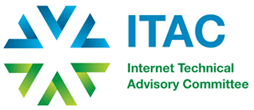By Jørgen Abild Andersen, Chair of the ICCP Committee
Given the rapidly changing technological, economic and social environment surrounding the Internet, multi-stakeholder processes have demonstrated the flexibility and global scalability required to address Internet policy challenges. The importance of effective participation by non-governmental stakeholders in policy work on the Internet economy was first highlighted in the OECD’s Ottawa Ministerial Conference on electronic commerce in 1998.
In June 2008, it was echoed in the Seoul Declaration, in which Ministers committed to “working collectively with all stakeholders.” The OECD Secretary-General highlighted the issue in his closing remarks in Seoul, where he called for a “process of formalising the participation of civil society and the technical community in the work of the OECD on the Internet economy.” And in its 2011 Recommendation on Principles for Internet Policy Making, the OECD Council called upon members to “Encourage multi-stakeholder co-operation in the policy development process.”
Through a process concluding in 2009 the Internet technical community joined civil society, business and labour representatives at the ICCP Committee meetings to assist government officials in grappling with many of the key policy issues raised by the Internet and new and emerging digital technologies.
ITAC is now a regular and highly appreciated contributor to the work of the ICCP, weighing in on a range of issues that are essential to the healthy development of the Internet to the benefit of our economy and society, including the role of Internet intermediaries, cloud computing, ICTs and the environment, privacy, cybersecurity, identity management, and digital content, among others.
Recently ITAC has further increased its engagement with the work of the ICCP Committee, including by organising a roundtable discussion on cryptography policy at a meeting of the Working Party on Information Security and Privacy meeting in April 2013. It also co-organised with OECD a session on “Cybersecurity: throwing out preconceptions” at the 2013 Internet Governance Forum annual meeting in Bali.
The ICCP Committee and myself, as Chair of the Committee, look forward to a continued close working relationship and engagement with ITAC. This close working relationship will be especially crucial in the lead-up to the OECD Ministerial Conference on Internet issues being planned for 2016.
______________________________________________
Jørgen Abild Andersen is among the World’s most experienced government officials within the ICT area.
From 1991-2012 Mr Abild Andersen served as national telecom regulator in Denmark and he has in this capacity been responsible for implementing the liberalisation of the Danish telecoms market.
Prior to this he worked as Deputy Permanent Secretary in the Danish General Directorate of Posts and Telegraphs. During that period, he played a key role in the restructuring and privatisation of the Danish telecoms sector and in the establishment of competition within mobile communications.
With the establishment of the National IT and Telecom Agency in 2002, the portfolio of Jørgen Abild Andersen was extended to cover the whole policy range within the ICT area. His policy responsibilities included i.a. privacy, trust and security in the Information Society, eBusiness, eGovernment, eSkills, green ICTs, the national digital signature as well as broadband, DNS and radio spectrum.
Mr Abild Andersen gained a Masters of Law from the University of Copenhagen in 1975. He started his professional career as a civil servant in the Ministry of Public Works and for a three-year period he served as Private Secretary to the Minister.
From 2003 to 2004 Mr. Abild Andersen was chairing the European Commission’s Radio Spectrum Policy Group. In 2005, he served as Chair for European Regulators Group (ERG) and the Independent Regulators Group (IRG). From 2006 to 2012 he was Denmark’s representative at the European Commission’s i2010 High Level Group and the Commission’s Digital Agenda High Level Group respectively. In October 2009 he was elected Chair of OECD’s Committee for Information, Computer and Communications Policy (ICCP).

